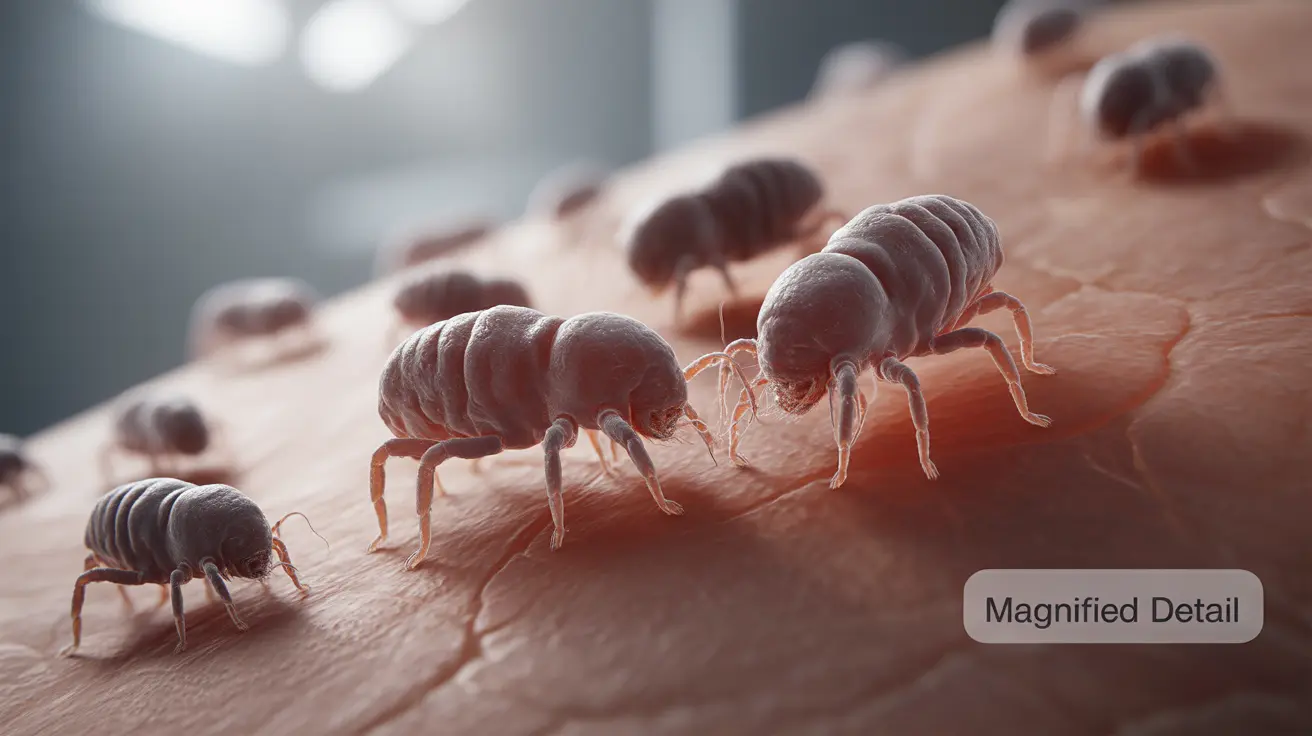Many people wonder whether scabies is classified as a sexually transmitted disease (STD) due to its potential spread through intimate contact. While scabies can be transmitted during sexual activity, it's important to understand that it's not exclusively an STD. This microscopic mite infection can spread through various forms of close skin-to-skin contact and even through sharing contaminated items.
Understanding Scabies and Its Classification
Scabies is caused by tiny parasitic mites called Sarcoptes scabiei that burrow into the skin and lay eggs. While intimate contact during sexual activity can transmit scabies, the condition is more accurately described as a skin infestation rather than an STD. The mites can spread through any prolonged skin-to-skin contact, making it possible to contract scabies in non-sexual situations.
Transmission Methods and Risk Factors
Scabies spreads primarily through direct, prolonged physical contact with someone who has the infection. This includes:
- Sharing beds or sleeping spaces
- Close physical contact in households
- Extended skin-to-skin contact during caregiving
- Sharing contaminated clothing or bedding
- Living in crowded conditions
Understanding these transmission routes is crucial for prevention and identifying potential exposure risks. The mites can survive for 48-72 hours without human contact, making contaminated items a potential source of infection.
Recognizing Scabies Symptoms
The symptoms of scabies typically develop 2-8 weeks after exposure for first-time infections, or within days for people who have had previous infections. Common signs include:
- Intense itching that often worsens at night
- Thin, irregular burrow tracks on the skin
- Small, red, raised bumps
- Irritation and rashes between fingers, on wrists, elbows, and other areas
- Sores from scratching
Diagnosis and Medical Assessment
Healthcare providers typically diagnose scabies through a combination of physical examination and patient history. They look for characteristic signs such as burrow tracks and distinctive rash patterns. In some cases, they may take a skin scraping to examine under a microscope to confirm the presence of mites or eggs.
Treatment Options and Prevention
Effective treatment for scabies typically involves prescription medications called scabicides. These treatments include:
- Permethrin cream 5%
- Ivermectin (oral medication)
- Other prescribed lotions or creams
To prevent reinfestation, it's essential to:
- Treat all household members and close contacts simultaneously
- Wash all bedding, clothing, and towels in hot water
- Seal non-washable items in plastic bags for at least 72 hours
- Vacuum all carpets and furniture thoroughly
Frequently Asked Questions
Is scabies considered a sexually transmitted infection (STI)?
While scabies can be transmitted during sexual contact, it's not exclusively an STI. The condition can spread through any prolonged skin-to-skin contact or sharing of contaminated items.
How is scabies spread besides sexual contact?
Scabies can spread through close physical contact in households, sharing beds or clothing, prolonged skin-to-skin contact during caregiving, and in crowded living conditions.
What are the common symptoms of scabies to watch for?
Common symptoms include intense itching (especially at night), thin burrow tracks on the skin, small red bumps, and rashes, particularly between fingers, on wrists, and elbows.
How is scabies diagnosed and what tests are needed?
Diagnosis typically involves a physical examination looking for characteristic signs and symptoms. Sometimes, skin scrapings may be examined under a microscope to confirm the presence of mites or eggs.
What treatments are effective for scabies and how can reinfestation be prevented?
Effective treatments include prescription scabicides like permethrin cream or oral ivermectin. Prevention of reinfestation requires treating all household contacts simultaneously and thoroughly cleaning all potentially contaminated items.




